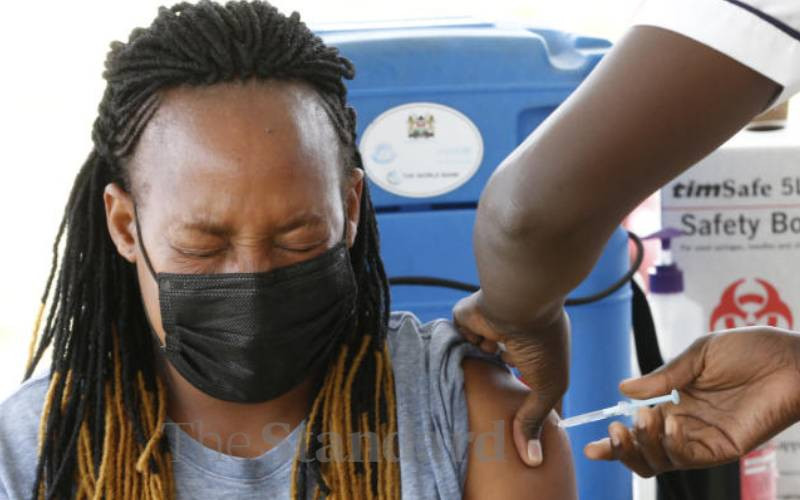
India and China have cleared a new approach in Covid-19 vaccination - two needle-free options, one a squirt in the nose and the other inhaled through the mouth.
Regulators in India authorised Bharat Biotech's nasal version on Tuesday as an option for people who haven't yet been vaccinated.
"This step will further strengthen our collective fight against the pandemic," Health minister Mansukh Mandaviya said on Twitter.
It's not clear how well the nasal version works. Bharat didn't immediately release results of its studies or say how soon the new option will roll out.
CanSino Biologics announced on Sunday that Chinese regulators have approved an inhaled version of the company's injected Covid-19 vaccine to be used as a booster dose.
The company pointed to preliminary results of studies suggesting the inhaled version revved up immune protection after one puff. It's not clear if that translated to improved effectiveness, or how soon the inhaled booster will be available.
Coronavirus vaccines today are shots, and they've saved millions of lives and continue to offer strong protection against severe illness and death, even as more contagious variants of the virus circulate.
But shot-free versions are being explored as a strategy to improve protection against infection, with particular interest in nasal vaccines designed to fend off the virus right where it enters the body.
Nearly a dozen possible candidates are in various stages of testing globally, and CanSino's is one of two inhaled vaccine candidates, according to the World Health Organisation.
India's nasal vaccine was developed by scientists at the Washington University in St Louis and later licensed to Indian vaccine maker Bharat Biotech.
The company conducted two trials, giving two doses of the vaccine to 3,100 previously unvaccinated volunteers and as a booster to around 875 volunteers who had received two shots of other Covid-19 vaccines.
Bharat is also seeking clearance for the nasal spray to be used as a booster for the two-thirds of people in India who've already been vaccinated. Bharat's nasal spray uses a harmless chimpanzee cold virus to deliver a copy of the coronavirus spike protein to the lining of the nose, training the body to react if it encounters the real virus.
CanSino's inhaled booster uses a similar harmless human cold virus - it's the company's one-dose injected vaccine turned into an aerosolized form. The inhaled vaccine was largely tested as a booster for people who had received another Chinese company's Covid-19 shots.
Ashley St John, an immunologist at the Duke-NUS Medical School in Singapore, said scientists are pursuing nasal and inhaled options because the immune system has specialised tools to protect different sites in our body in slightly different ways.
"The advantage with nasal vaccines is that it may get rid of the virus before it has a chance to establish itself in the lungs and replicate," said Dr Vineeta Bal, an immunologist at the Indian Institute of Science Education Research.
The advantages that vaccines sprayed through the mouth have will depend on the size of individual droplets in the spray, Dr Bal added.
Large droplets would train defences in the mouth and parts of the throat, while smaller droplets are expected to travel deeper and reach the lungs.
It also may be easier to administer a squirt in the nose, especially in low-income countries, said Dr Michael Diamond of Washington University in St Louis, who helped create the vaccine licensed to Bharat. In October last year, Russia's.
 The Standard Group Plc is a multi-media organization with investments in media platforms spanning newspaper print
operations, television, radio broadcasting, digital and online services. The Standard Group is recognized as a
leading multi-media house in Kenya with a key influence in matters of national and international interest.
The Standard Group Plc is a multi-media organization with investments in media platforms spanning newspaper print
operations, television, radio broadcasting, digital and online services. The Standard Group is recognized as a
leading multi-media house in Kenya with a key influence in matters of national and international interest.











